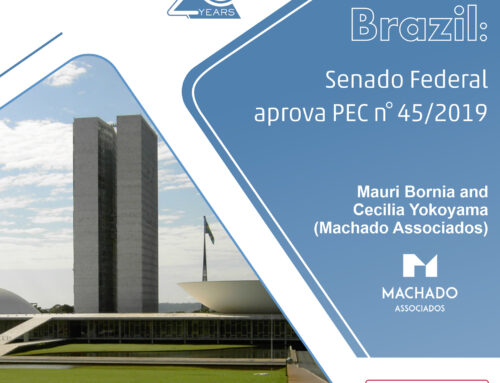Transparency and Equity Revaluation Law No. 46-20
Law No. 155-17, against Money Laundering and Financing of Terrorism enacted on July 1, 2017 creates the need to establish special procedures for its implementation. For these purposes, the Tax Administration requires further transparency and an expedite mechanism to obtain updated information regarding the patrimony of all physical and legal persons carrying out activities in the Dominican Republic (“DR”), including assets located locally and abroad.
The Transparency and Equity Revaluation Law No. 46-20 (the “Equity Transparency Law”), enacted on February 19, 2020, was created to establish a transitory special tax regime consisting of a reduced tax rate for taxpayers that voluntarily declare, at market value, all of their movable and immovable assets located in the country or abroad, including the undeclared ones. With the equity disclosure at market value, the purpose of this law is achieved, that is, the transparency and equity revaluation of the taxpayer so that the Tax Administration has greater visibility of taxpayers’ assets, its current value and origin.
I. Purpose, Scope and Application
The purpose of the Equity Transparency Law, of national application, is the implementation of a transitory special tax regime, allowing taxpayers to voluntarily formalize their tax obligations and disclose or revaluate, at market value, all of their equity before the Internal Revenue Agency (“Dirección General de Impuestos Internos” or “DGII”, for its acronym in Spanish) by paying taxes at a reduced rate.
Once the corresponding request complies with the requirements established by the Equity Transparency Law as indicated further on, and therefore processed; physical and legal persons and undivided inheritances may be eligible to benefit from this transitory special tax regime.
II. Assets subject to disclosure or revaluation. The following assets may be eligible to obtain the benefits of the Equity Transparency Law:
- National or foreign currency deposited in a regulated and authorized institution, pursuant to the laws of the corresponding jurisdiction, which shall be disclosed to the DGII by providing the corresponding certificate.
- Financial instruments or values issued by any entity, nominative shares, bonds, credits established by contracts,
promissory notes or similar, similarly affected assets and any right subject to an economic value. - Real estate with the corresponding legalized documentation that certifies ownership.
- Movable assets located in DR, including, category 2 assets as established in the Law 11-92 and amendments (“Law
11-92”): vehicles, commonly used light trucks; office equipment and furniture; computers, information systems and
data processing equipment; as well as category 3 assets of said law: any other depreciable property. - Inventories for sale or production may be corrected as long as its expiration date has at least 6 months of validity
from the date of the revaluation request. - Any type of equity, provided that the revaluation implies a decrease in assets, including receivables to shareholders, real estate, movable property and inventories.
III. Excluded assets and rights. The following assets and rights are excluded from the scope of the Equity Transparency Law:
- Those acquired illegally. In the event of a judicial decision on this regard, the DGII may dismiss the application to
obtain the benefits of the Equity Transparency Law, reversing its effects, and may proceed with the collection of
the corresponding interest, surcharges and penalties. - Deposits in foreign financial institutions as well as securities registered or guarded in countries classified as “High
Risk or Non-Cooperating” by the International Financial Action Task Force (FATF). Countries in the process of cooperation are excluded from this list, and therefore, deposits made in financial institutions of these countries, should
not be excluded from the scope of the Equity Transparency Law.
IV. Formalities for the disclosure or equity revaluation. The following formalities are required:
- The holding of currencies shall be recorded at face value.
- Financial instruments shall be recorded with its acquisition cost, duly justified.
- The assets and rights expressed in foreign currency shall be valued in national currency, at the exchange rate for
purchase on the spot market. - Personal property will be disclosed and/or revalued at market value. Such market value is the result of the application of the depreciation to the acquisition value, as established in Article 287 of Law 11-92. The market value of vehicles will be the one published by DGII.
- Real estate will be disclosed or revalued at market value, duly supported by reliable documents, which may include an appraisal made by an accredited professional. When the reliable document regarding the market value of the
property is an appraisal, the DGII may object to it.
V. Capital gain and contributions for future capitalizations
- The adjusted fiscal cost of revalued or contributed capital assets will decrease by 20%, provided they have been
contributed in kind or disposed of within the year after the revaluation or disclosure for transparency purposes. - The contribution for future capitalization, resulting from asset revaluation made by legal entities, must be capitalized before the next fiscal period’s year-end for Income Tax; otherwise, corresponding adjusted fiscal cost will not
be recognized. This revaluation will not have a tax effect for shareholders.
VI. Tax rate
- The special tax rate applicable to the total value of the voluntarily declared assets is 2%, as a single and final payment. This rate will be applied to the determined tax base of the asset declaration or revaluation.
- The tax base for the application of the corresponding tax, in case of a subsequent disposition of the revalued and/
or disclosed assets or rights, will be the declared value under the Equity Transparency Law. - The assets disclosed and/or revalued will be subject to ordinary tax obligations.
- Tax obligations that may result from the revaluation process (direct and indirect taxes) will take effect in the future.
VII. Procedure and requirements for debt payment
- Total (100%) surcharges will be eliminated on all tax debts regarding any type of tax or origin, whether the debt is
undergoing an appeal process or not. Interest will be applied only considering the most recent year. The debts appealed must be withdrawn, without conditions, before the corresponding administrative office or court of law. - Taxpayers that have omitted the filing of tax returns and/or those that have made tax returns amendments are
included.
To be eligible and benefit from the indicated payment facilities, the taxpayers should not have:- Used fraudulent or unauthorized fiscal supporting documents number (“Números de Comprobantes Fiscales” or “NCF” for its acronym in Spanish) or NCFs that support “simulated and irregular” operations, upon the Tax Administration’s consideration.
- Criminal legal action initiated by the Tax Administration for assessed tax obligations.
VIII. Request procedure, terms and validity
- The deadline for making the request in writing is 90 calendar days from the effective date of the Equity Transparency Law. However the complete procedure shall not exceed 180 calendar days from the date of the request filed request, to the approval granted by DGII and corresponding payment made by the taxpayer.
- In the event that the taxpayer chooses to make fractional payments, 40% of the total due must be advanced and
the remaining must be paid before 180 calendar days counted from the date in which the amount to be paid was determined. The delay in payments will generate the surcharges and interest established by Law 11-92. - The DGII will issue the general norm, forms, accounting treatments and corresponding procedures to make the request under the Equity Transparency Law.
IX. Rejection of the request
- Within 30 business days from receipt, the DGII may reject the request for the declaration and/or equity revaluation
and ease of payment of overdue debts when:- The assets and rights are not the eligible ones, as established in the Equity Transparency Law.
- b. The assets included in the application are not supported by the reliable documents that certify their ownership.
- c. The DGII verifies that supporting documentation has been altered or does not correspond to the assets subject
to the request. - d. The requirements and procedures indicated in the Equity Transparency Law have not been met.
- In the event that the application is rejected in the cases listed above from 2-4, the taxpayer may amend the request
and resubmit, as a last chance within 90 calendar days from the effective date of the Equity Transparency Law.
For the National District, the law will become effective on February 20 and for the rest of the country, on February
21, 2020. - Administrative silence does not constitute approval of the request made.





